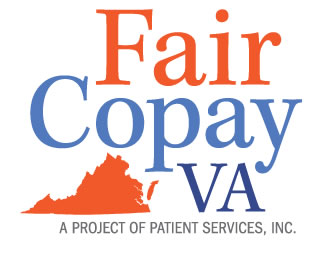by Amanda Conschafter, blog editor
As state legislatures gear up for the new year, several have introduced legislation aimed at accessible, safe medications.

- Virginia has introduced a bill to limit excessive co-payments and co-insurance rates, ensuring patients’ access to vital medications. HB 1948 and SB 1394 “will increase access to medications by ensuring that the required copayment or coinsurance … does not exceed $100 per month for a 30 day supply,” explains FairCopayVA.org.
The organization notes that specialty tier drugs, sometimes needed for rare or chronic illnesses, sometimes come with exorbitant co-insurance rates. Patient who cannot afford their out-of-pocket costs are effectively priced out of the care they need.
- Washington state has introduced legislation on so-called “pay to prescribe” SB 5443 would require disclosure to patients of any insurance plan that compensates health care providers to prescribe one prescription drug over another. The bill would also require insurers to inform patients of any penalties that encourage physicians “to minimize or avoid referrals to specialists.”
The bill aims to reinforce the Affordable Care Act’s vision of informed, empowered patients selecting the health insurance coverage that’s best for them.
- Colorado is among the first states this year to introduce legislation on substituting biosimilar medications for brand-name biologics. SB 71 prioritizes patient safety by requiring communication among the pharmacist, patient and physician – ensuring that physicians know when a substitution occurs.
The Alliance for Patient Access submitted a letter of support to legislators on behalf of its Colorado members. AfPA noted that “the legislation contains the patient safety principles that AfPA member physicians have identified as critical for safe access to biosimilar medications and is worthy of [legislators’] support.”
Georgia, Texas and several other states also have substitution bills pending. Legislators may be spurred to action by the Food and Drug Administration’s recent recommendation for approval of the first U.S. biosimilar.

